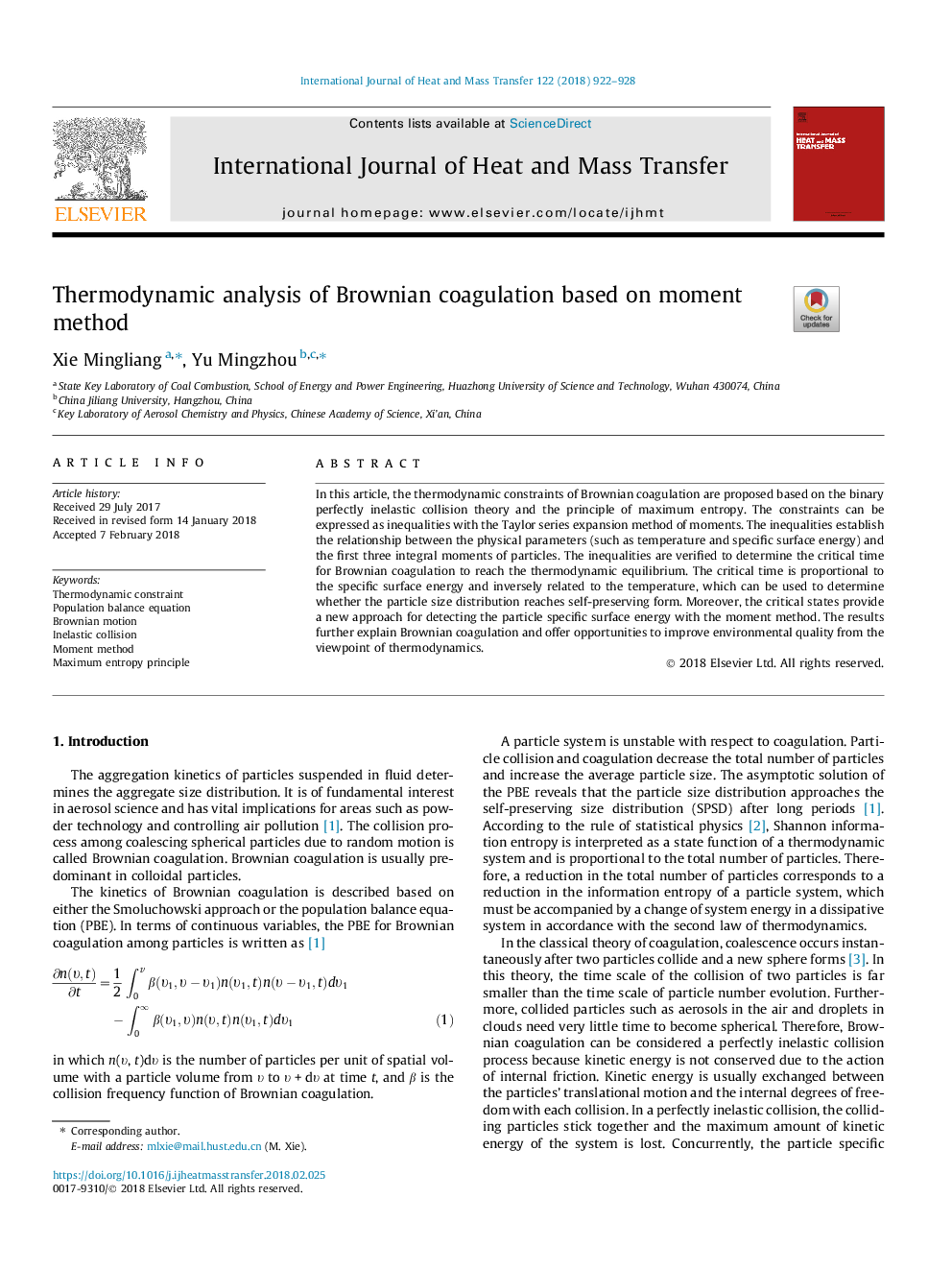| Article ID | Journal | Published Year | Pages | File Type |
|---|---|---|---|---|
| 7054439 | International Journal of Heat and Mass Transfer | 2018 | 7 Pages |
Abstract
In this article, the thermodynamic constraints of Brownian coagulation are proposed based on the binary perfectly inelastic collision theory and the principle of maximum entropy. The constraints can be expressed as inequalities with the Taylor series expansion method of moments. The inequalities establish the relationship between the physical parameters (such as temperature and specific surface energy) and the first three integral moments of particles. The inequalities are verified to determine the critical time for Brownian coagulation to reach the thermodynamic equilibrium. The critical time is proportional to the specific surface energy and inversely related to the temperature, which can be used to determine whether the particle size distribution reaches self-preserving form. Moreover, the critical states provide a new approach for detecting the particle specific surface energy with the moment method. The results further explain Brownian coagulation and offer opportunities to improve environmental quality from the viewpoint of thermodynamics.
Keywords
Related Topics
Physical Sciences and Engineering
Chemical Engineering
Fluid Flow and Transfer Processes
Authors
Xie Mingliang, Yu Mingzhou,
